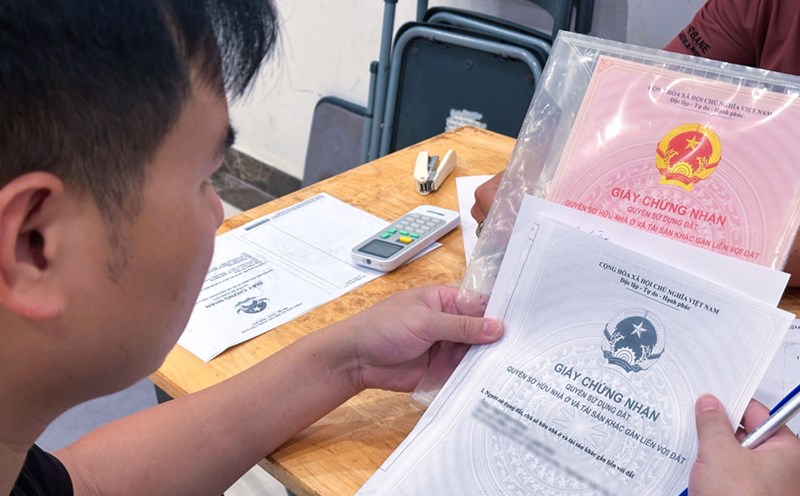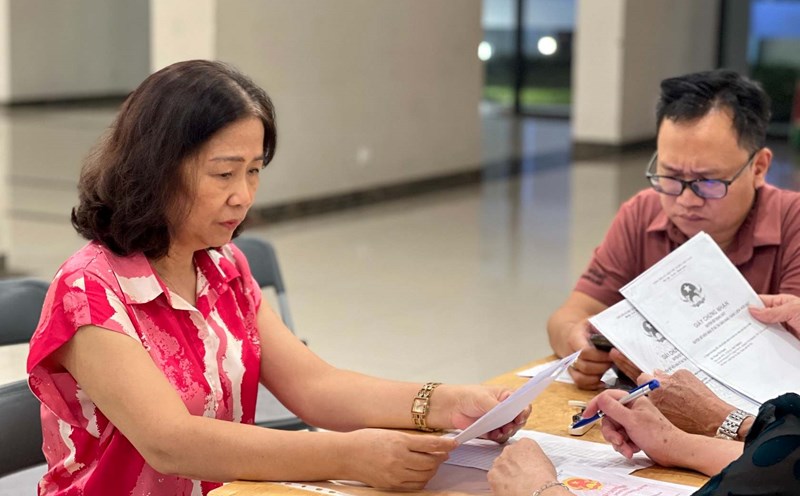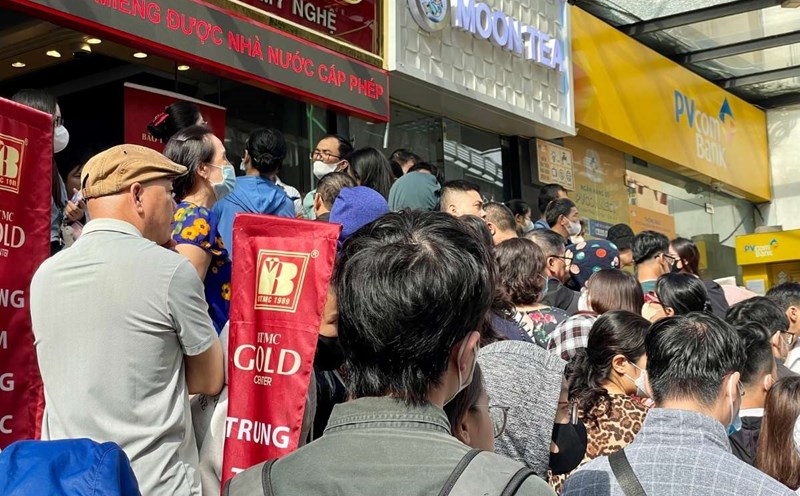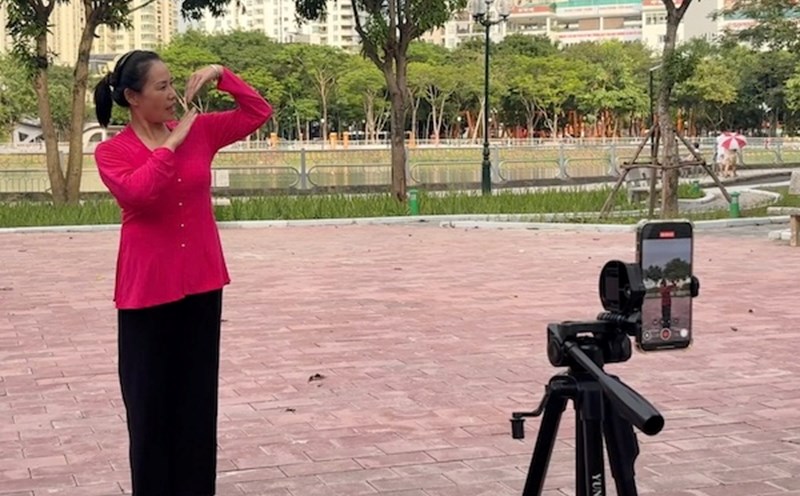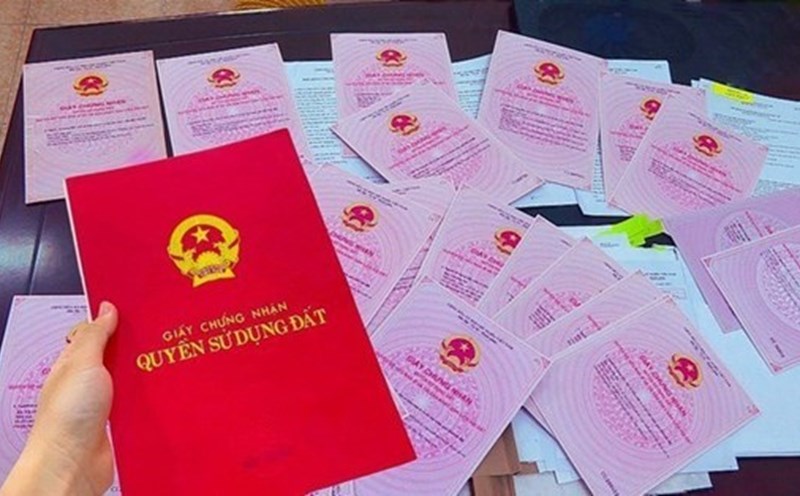From September 1 to November 30, 2025, Hanoi will launch a campaign "90 days of land data cleaning" - this is an opportunity for the city to thoroughly resolve the situation of disjointed and inconsistent land data. When data is clean, transparent and linked to population data, we will have a solid foundation for more effective management, serving people faster, minimizing disputes and complaints.
When the land database is standardized and connected with other national data systems, Hanoi will have effective tools to plan development policies, attract investment and manage the real estate market more transparently.
The People's Committee of Tay Mo Ward, Hanoi City has just issued a Notice on the implementation of the 9-day campaign to get rich, clean up national land data in the ward, and at the same time collect data on red books and citizen identification cards of people.
The goal of reviewing and cleaning up land data has been built over many periods in more than 2,300 communes and wards across the country. Digitize and update certificates of land use rights and house ownership rights (red books, pink books) not yet available in the system. Authentication of information of land users and homeowners with a Citizen Identification Card (CCCD) and comparison with population data.
The implementation period, according to the People's Committee of Tay Mo Ward, will be implemented from October 10, 2025 to October 20, 2025. Location at the Residential Group Cultural House.
Collection time: Morning from 8:00 to 12:00; afternoon from 14:00 to 18:00; evening from 19:00 to 9:30.
Notably, the People's Committee of Tay Mo Ward stated that if the above deadline is exceeded, the land user will not cooperate in providing information, except in cases of force majeure and having a legitimate reason, all arising benefits will not be considered and resolved.
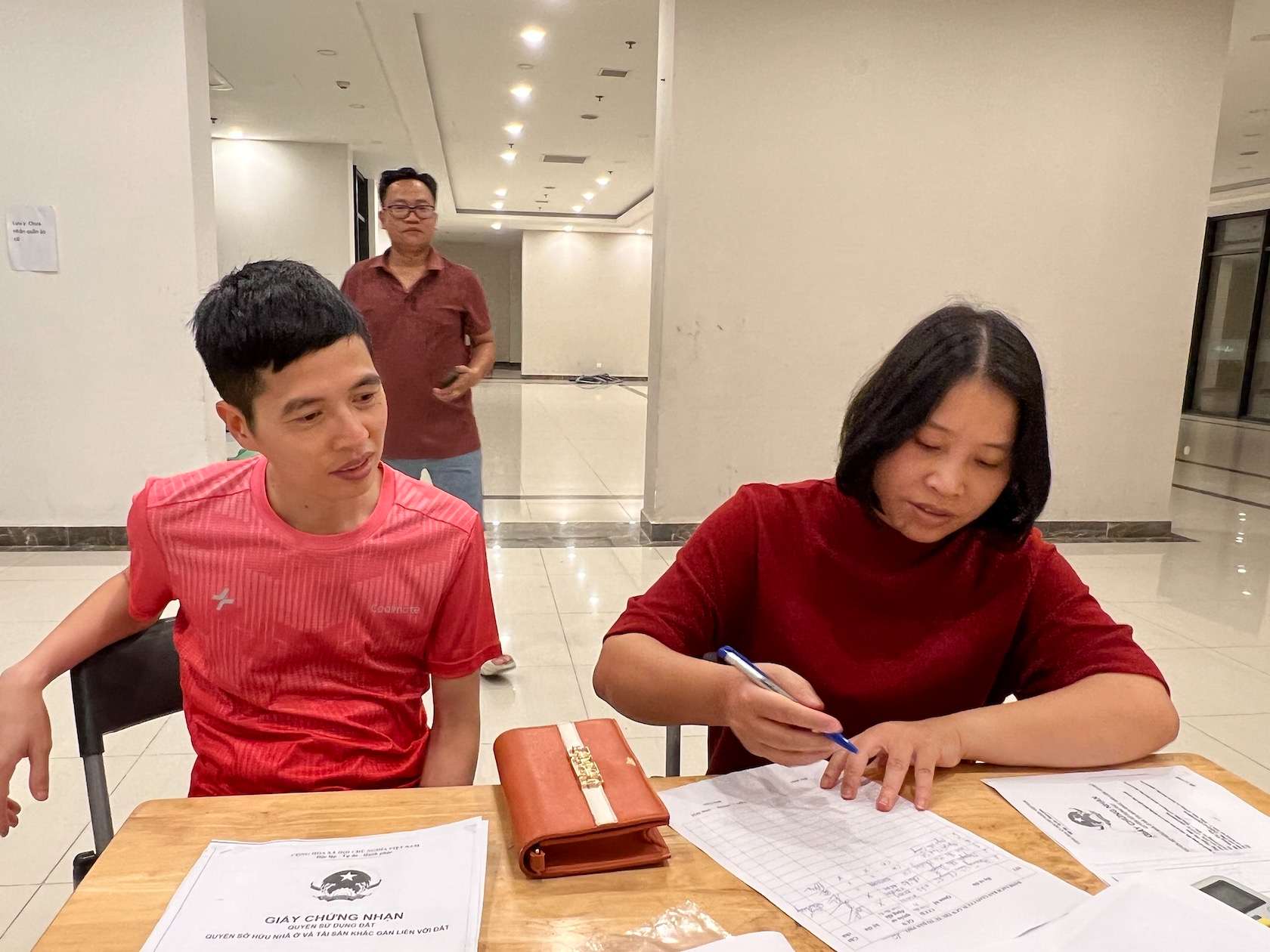
Receiving a notice from the residential group on the Zalo group about the 90 days campaign to clean up information and land data, Ms. Ngoc Anh (resident of Tay Mo ward) said that residents are instructed on photos (no notarization required) of land use right certificates and citizen identification cards.
"My documents are complete, so I just need to take a photo and submit it to the Head of the residential group and it's done," said Ms. Ngoc Anh, adding that the process is very fast, the procedure takes less than a minute.
In addition, she and the residents received very quick support from the residential group, the Party cell secretary, and answered many questions from the zalo group, so everything went very smoothly when submitting the documents.
"Collisioning information on red book and citizen identification cards is a step to digitize national data, helping to make land management transparent, limiting errors, overlaps, and disputes. Reduc administrative procedures when people and businesses do not have to return documents in the system. Increase the effectiveness of State management and support digital transformation in the land sector and ensure the rights of people when land information is authenticated and synchronized. Therefore, as a resident, I comply" - Ms. Ngoc Anh (Resident of Residential Group 10, Tay Mo Ward, Hanoi) said.
Acting Minister of Agriculture and Environment Tran Duc Thang recently signed and issued Official Letter No. 7842/BNNMT-TCCB on launching the emulation movement "Getting rich, cleaning up the national land database".
The purpose of the movement is to improve the consistency, completeness and accuracy of land data in the entire agricultural and environmental sector; improve the quality of public service provision on land, reform and resolve administrative procedures on land for people and businesses in the electronic environment...
Units deploy emulation movements with appropriate content, striving to achieve the goals set out in Plan 515, focusing on emulation in implementing the following contents: Emulation in completing existing land databases (LDLs), ensuring "correct - sufficient - clean - living"; Emulation in building land and housing data for places where land databases have not been built; Emulation in completing synchronously, connecting, sharing land databases, unifying and sharing; Emulation in the management and operation of land databases, online public services.


